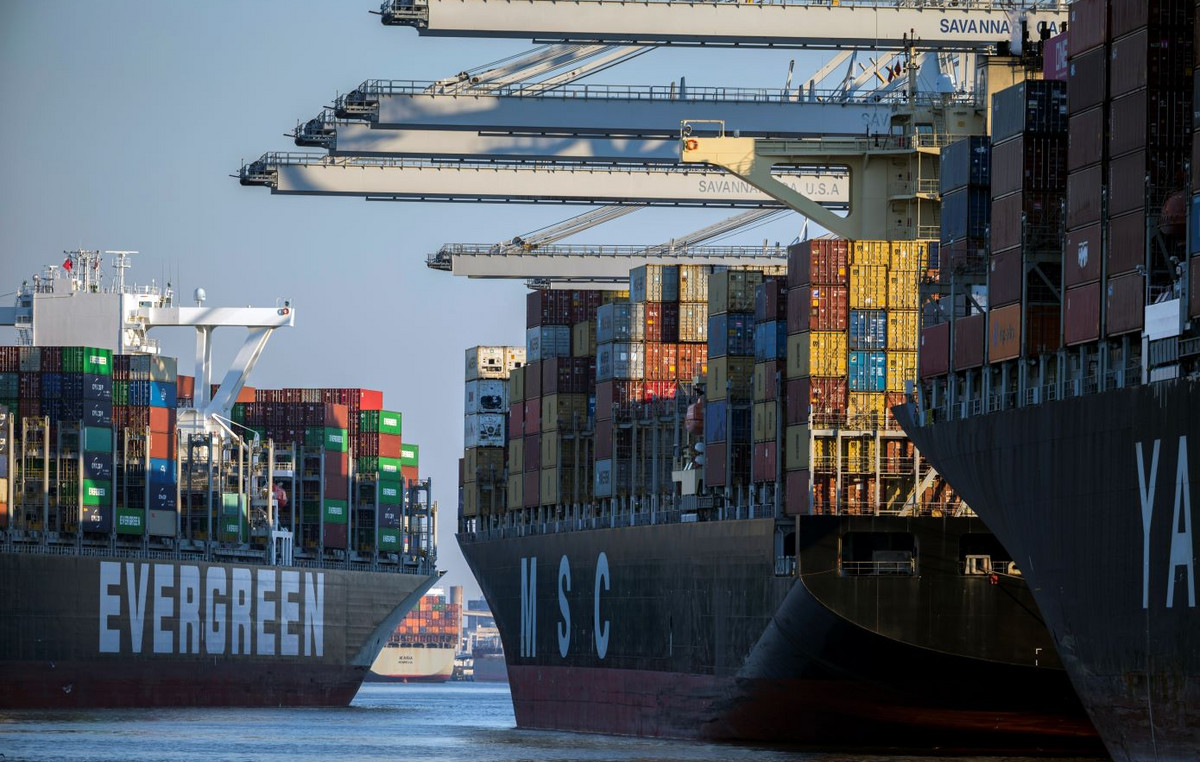Each year is important, each year is fundamental and each year brings surprises — good and bad. But it is impossible to escape the feeling that the world is close to a precipice and that in 2024 we will take a step forward, subverting the world order, or a step back, returning to a version of “normality”.
What will 2024 bring?
“Predictions are difficult, especially about the future,” says a truism attributed to former baseball player Yogi Berra, Nobel Prize-winning physicist Niels Bohr, and many others. The obviousness highlights how uncertain the future is — as we learned in 2020 — and how frustrating the search for answers can be, given the magnitude of the risks.
Without a doubt, elections in the United States are one of the dominant concerns around the world today. I've lost count of how many people have told me during recent trips how concerned and perplexed they are about the possibility of Americans returning former President Donald Trump to the White House.
In fact, “The Economist” magazine declared that “Donald Trump poses the greatest danger to the world in 2024”, describing him as a shadow that looms over us all.
The election will determine whether Trump's chaotic presidency, with its authoritarian traits, was just a fluke in US history, or whether it is Joe Biden's presidency that represents nothing more than a four-year pause in America's descent into authoritarian isolationism.
The response will have serious repercussions around the world.
A second Trump presidency would almost certainly be more extreme on several fronts. The former president has vowed to use the Justice Department to seek revenge against his political opponents by undermining U.S. institutions, undermining democracy and flirting with dictatorship.
These actions would strengthen those who argue that Western-style democracy is a failed system, strengthening the emerging bloc of anti-Western autocracies—Russia, China, Iran, and North Korea—a team of tyrants seeking to challenge the West's global influence as they , all heavily armed, threaten their neighbors.
Trump said enough for America's allies and adversaries to understand the risks — or potential, depending on your perspective — of a second term. And his pronouncements have led America's allies to question how committed Washington would be to defending him if he returned to office.
The former president has already declared that he would end the war in Ukraine within 24 hours. He questioned whether the US should defend South Korea and alluded to countries like Japan and South Korea obtaining nuclear weapons to defend themselves.
The comments about Ukraine undoubtedly caught the attention of Russian President Vladimir Putin, the autocrat Trump dislikes criticizing and even praising, as he encircles Ukraine.
European Union foreign policy chief Josep Borrell said Putin will not be satisfied with a limited victory in Ukraine, “especially not before the American elections, which could present him with a much more favorable scenario.”
In other words, Putin will continue to attack, hoping that a Trump victory in November will pull the rug out from under Washington's support for Kiev, helping Russia achieve total victory over Ukraine.
As countries formerly under Moscow's rule and others have warned, if Russia wins in Ukraine, Putin could see a path to reclaiming other parts of the former Soviet empire, perhaps trying to conquer tiny Moldova and even the Baltic states that are now members of the NATO.
NATO is supposed to defend all its members, but Trump has already cast doubt on whether the US would help an ally in trouble. Despite the recent bipartisan passage of a bill that would prohibit a president from unilaterally withdrawing the U.S. from NATO without congressional approval, the president would have broad freedom to respond to global military challenges.
We see this almost daily during today's crises, as Biden has sent US warships to the Mediterranean and Red Sea in an effort to prevent the expansion of the war between Israel and Hamas – a conflict that already threatens to become regional – or repeatedly sent messages pledging support for Taiwan as a warning to China, whose leader only repeated his promise to reunify the island.
If the US backs down while Putin promotes his neo-imperialist goals, China may be tempted to try to take over Taiwan and further intimidate its neighbors. The very prospect of an emboldened China would deal a blow to nuclear nonproliferation efforts.
It would also trigger global tremors of volatility. The end of the Pax Americana, however imperfect, would encourage more medium-sized powers to take up arms against their rivals.
And yet, Trump may not win the election. If Biden is re-elected, the chances of restoring global stability are much greater. But they are far from safe.
In fact, the US is just one of dozens of countries set to hold elections, including key nations like Mexico, India, Indonesia, Russia and the United Kingdom. The outcome of some is predetermined. The elections in Russia, for example, are a sham. But others may signal new directions in the coming years.
One thing we know is that no one lives forever. Major world figures — Biden, Trump, Iranian Supreme Leader Ali Khamanei — are in their 70s and 80s. Khamenei was ill in 2022, but his office denied the reports. We don't know who will succeed him, how radical his successor will be, or how the Iranians will respond when the time comes.
Let's not forget that 2024 will certainly also bring good surprises. We don't know what (they are surprises!), but there is a considerable probability that the problems can be resolved for the better.
I'm generally not pessimistic about the future. Today, the US is in good hands. The economy is doing very well. The West, despite its challenges, is united. People everywhere prefer freedom to slavery.
Many dark scenarios have a flip side, a potentially happy outcome. Much of it depends on the people making the decisions, from voters to world leaders. And countless people across the planet are working to secure a better future.
The very notion that we are on the edge of the precipice can motivate us to take a step back, to move away from the abyss, and towards a more peaceful and promising path.
Source: CNN Brasil
Bruce Belcher is a seasoned author with over 5 years of experience in world news. He writes for online news websites and provides in-depth analysis on the world stock market. Bruce is known for his insightful perspectives and commitment to keeping the public informed.







